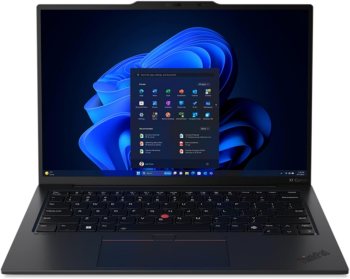- High performance
- Stunning display
- Flexible design
- Long battery life
- Durable construction
- Long battery life
- Excellent keyboard
- Premium price
- Can be slightly heavy for a tablet
- Expensive
- Limited ports
HP Spectre x360 (2024) vs Lenovo ThinkPad X1 Carbon Gen 12
The world of ultrabooks has never been more exciting, with top-tier manufacturers like HP and Lenovo constantly pushing the boundaries of innovation and performance. In this comparison, we'll delve into the features and capabilities of two of the most highly anticipated laptops: the HP Spectre x360 (2024) and the Lenovo ThinkPad X1 Carbon Gen 12.
Design and Display
The HP Spectre x360 (2024) boasts a stunning 13.5-inch OLED display with a 3:2 aspect ratio, offering vibrant colors and exceptional brightness. The laptop's sleek and durable design features a premium aluminum chassis, weighing in at just 2.95 pounds. In contrast, the Lenovo ThinkPad X1 Carbon Gen 12 sports a more traditional 14-inch IPS display with a 16:9 aspect ratio, although it's still remarkably thin and light, tipping the scales at 2.48 pounds.
While both laptops are designed to be highly portable, the HP Spectre x360 (2024) has a slight edge in terms of overall aesthetic appeal, thanks to its sleek and modern design language. However, the ThinkPad X1 Carbon Gen 12 makes up for this with its legendary durability and ruggedness, featuring a magnesium alloy chassis that's built to withstand the rigors of heavy use.
Performance
Under the hood, both laptops pack impressive processing power. The HP Spectre x360 (2024) is equipped with up to 13th Gen Intel Core i9 processors, paired with up to 64GB of DDR5 RAM and a range of storage options, including up to 2TB of SSD storage. The Lenovo ThinkPad X1 Carbon Gen 12, on the other hand, features up to 13th Gen Intel Core i9 vPro processors, along with up to 64GB of DDR5 RAM and up to 2TB of SSD storage.
In terms of raw performance, both laptops are more than capable of handling demanding tasks like video editing, software development, and data analysis. However, the ThinkPad X1 Carbon Gen 12 has a slight advantage when it comes to enterprise-specific features, thanks to its vPro processor and additional security features like Intel Hardware Shield.
Battery Life
One of the key advantages of ultrabooks is their ability to deliver exceptional battery life, and both laptops in this comparison excel in this regard. The HP Spectre x360 (2024) offers up to 14 hours of battery life, thanks to its power-efficient processor and advanced battery management system. The Lenovo ThinkPad X1 Carbon Gen 12, on the other hand, promises up to 15 hours of battery life, making it an excellent choice for road warriors and frequent travelers.
Ports and Connectivity
In terms of ports and connectivity, both laptops offer a range of options, including USB-A, USB-C, HDMI, and headphone jacks. However, the ThinkPad X1 Carbon Gen 12 has a slight edge in this regard, thanks to its inclusion of two Thunderbolt 4 ports, as well as an optional Ethernet extension connector.
Conclusion
Ultimately, the choice between the HP Spectre x360 (2024) and the Lenovo ThinkPad X1 Carbon Gen 12 will depend on your specific needs and preferences. If you're looking for a sleek and powerful ultrabook with exceptional display quality and a premium design, the HP Spectre x360 (2024) is an excellent choice. On the other hand, if you prioritize durability, enterprise-specific features, and advanced security, the Lenovo ThinkPad X1 Carbon Gen 12 is the better option.
As the ultrabooks market continues to evolve, it's clear that both HP and Lenovo are pushing the boundaries of what's possible in terms of performance, design, and innovation. Whether you're a student, professional, or simply someone who demands the best, these two laptops are sure to impress – and leave you wondering which one is right for you.

































